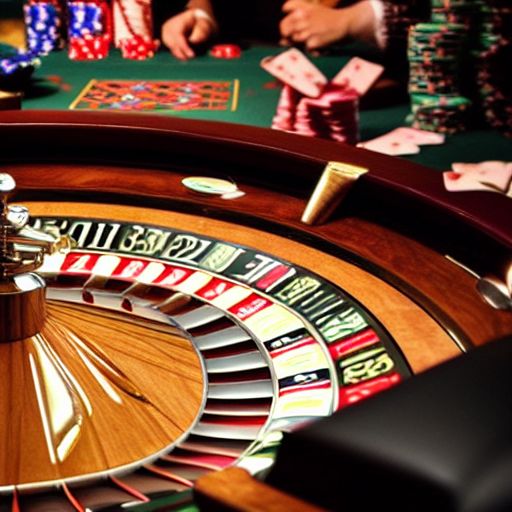Gambling has been a popular subject in movies and television shows for decades, with many iconic characters and storylines centered around the thrill and risk of placing bets. From classic films like “The Sting” and “Casino” to modern TV shows like “Breaking Bad” and “Billions,” gambling has been a recurring theme in popular culture.
One of the earliest examples of gambling in popular culture is the 1961 film “The Hustler,” starring Paul Newman as a pool hustler who takes on a high-stakes match against the reigning champion. The film was praised for its portrayal of the seedy underworld of pool halls and the psychological tactics used by players to gain an edge over their opponents.
Another classic film that prominently features gambling is “The Sting,” released in 1973. The film tells the story of two con artists who team up to pull off an elaborate scam involving a rigged horse race. The film was a critical and commercial success, and its clever plot twists and memorable characters have made it a favorite among moviegoers.
In more recent years, gambling has continued to be a popular subject in movies and TV shows. The hit TV series “Breaking Bad” features several memorable scenes centered around high-stakes poker games, while the Showtime series “Billions” revolves around the cutthroat world of hedge fund managers and their love for high-stakes gambling.
One of the most successful gambling-themed movies of all time is Martin Scorsese’s “Casino,” released in 1995. The film stars Robert De Niro as a casino executive in Las Vegas who becomes involved in a web of corruption and deceit. The film was praised for its gritty realism and attention to detail, and it remains a favorite among moviegoers to this day.
Other notable examples of gambling in popular culture include the classic film “Rounders,” which follows a young poker player played by Matt Damon as he navigates the underground world of high-stakes poker, and the cult TV series “Twin Peaks,” which features several memorable scenes set in a casino.
Gambling has also been a popular subject in literature, with several iconic novels centered around the world of gambling. Fyodor Dostoevsky’s “The Gambler,” published in 1867, is a semi-autobiographical novel that explores the author’s own struggles with addiction and his fascination with the thrill of gambling. Other notable works of fiction that feature gambling as a central theme include “Casino Royale” by Ian Fleming, “The Queen of Spades” by Alexander Pushkin, and “The Cincinnati Kid” by Richard Jessup.
In conclusion, gambling has played a significant role in popular culture, with many iconic characters and storylines centered around the thrill and risk of placing bets. From classic films like “The Hustler” and “The Sting” to modern TV shows like “Breaking Bad” and “Billions,” gambling has been a recurring theme in movies and television shows for decades. Its enduring popularity is a testament to the allure of risk and reward, as well as its ability to capture the imagination of audiences around the world.
